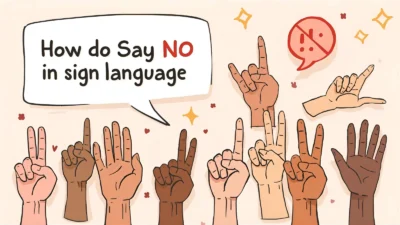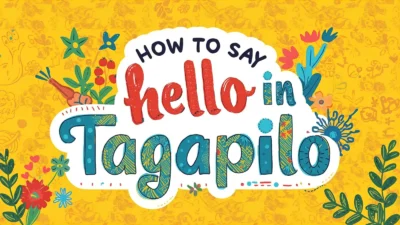How to Say Merry Christmas in German is a wonderful phrase to know if you want to share holiday cheer with German speakers. The most common expression is “Frohe Weihnachten,” which directly means Merry Christmas.
You can also hear “Fröhliche Weihnachten” in some regions, both used to spread warmth and joy during the festive season. Learning these greetings helps you connect with German traditions and celebrate in a heartfelt way.
Say Merry Christmas in German
Let’s explore 15 ways to say Merry Christmas in German, complete with dialogues and a little cultural sparkle.
15 Phrases to Say Merry Christmas in German
| # | German Phrase | English Meaning |
|---|---|---|
| 1 | Frohe Weihnachten | Merry Christmas |
| 2 | Fröhliche Weihnachten | Merry Christmas |
| 3 | Frohes Fest | Happy Holidays |
| 4 | Schöne Weihnachten | Beautiful Christmas |
| 5 | Gesegnete Weihnachten | Blessed Christmas |
| 6 | Frohe Weihnachten und ein gutes neues Jahr | Merry Christmas and a Happy New Year |
| 7 | Fröhliche Weihnachten und viel Glück im neuen Jahr | Merry Christmas and good luck in the New Year |
| 8 | Ein frohes und gesegnetes Weihnachtsfest | A merry and blessed Christmas celebration |
| 9 | Frohe Festtage | Happy festive days |
| 10 | Ich wünsche dir frohe Weihnachten | I wish you a Merry Christmas |
| 11 | Wir wünschen euch frohe Weihnachten | We wish you a Merry Christmas |
| 12 | Frohe Weihnachten, meine Freunde | Merry Christmas, my friends |
| 13 | Frohe Weihnachten für dich und deine Familie | Merry Christmas to you and your family |
| 14 | Herzliche Weihnachtsgrüße | Warm Christmas greetings |
| 15 | Frohe Weihnachten und besinnliche Feiertage | Merry Christmas and peaceful holidays |
1. Frohe Weihnachten – Merry Christmas
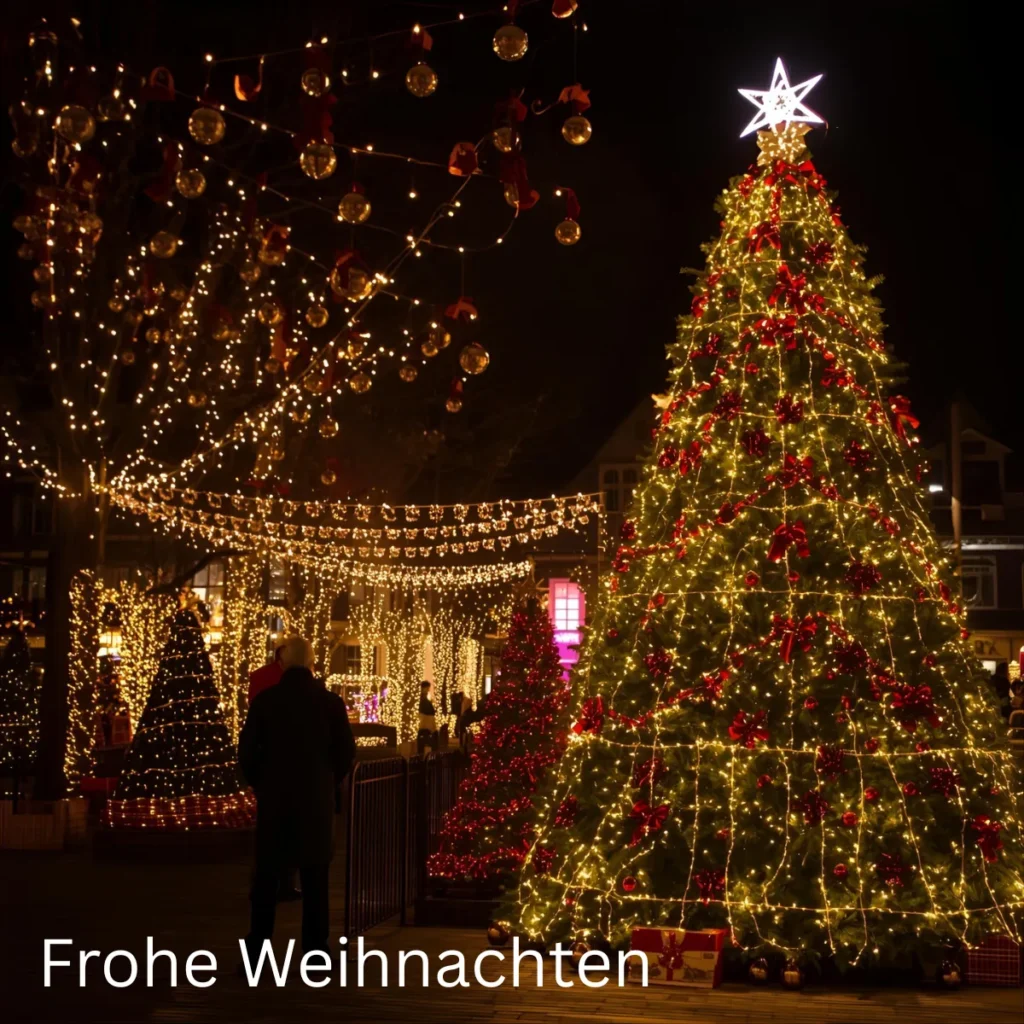
Origin:
This is the most standard and widely used phrase in Germany, Austria, and Switzerland. It literally means “Joyful Christmas.”
Example:
👤 User A: Frohe Weihnachten, Anna!
👤 User B: Danke! Dir auch frohe Weihnachten!
Use: Universal – used in cards, shops, public greetings.
2. Fröhliche Weihnachten – Cheerful Christmas
Origin:
A slight variation of “Frohe Weihnachten,” with “fröhlich” emphasizing cheerfulness.
Example:
👤 User A: Fröhliche Weihnachten, mein Freund!
👤 User B: Fröhliche Weihnachten! Lass uns feiern!
Use: Very similar to #1, just slightly more exuberant.
3. Schöne Weihnachten – Beautiful Christmas
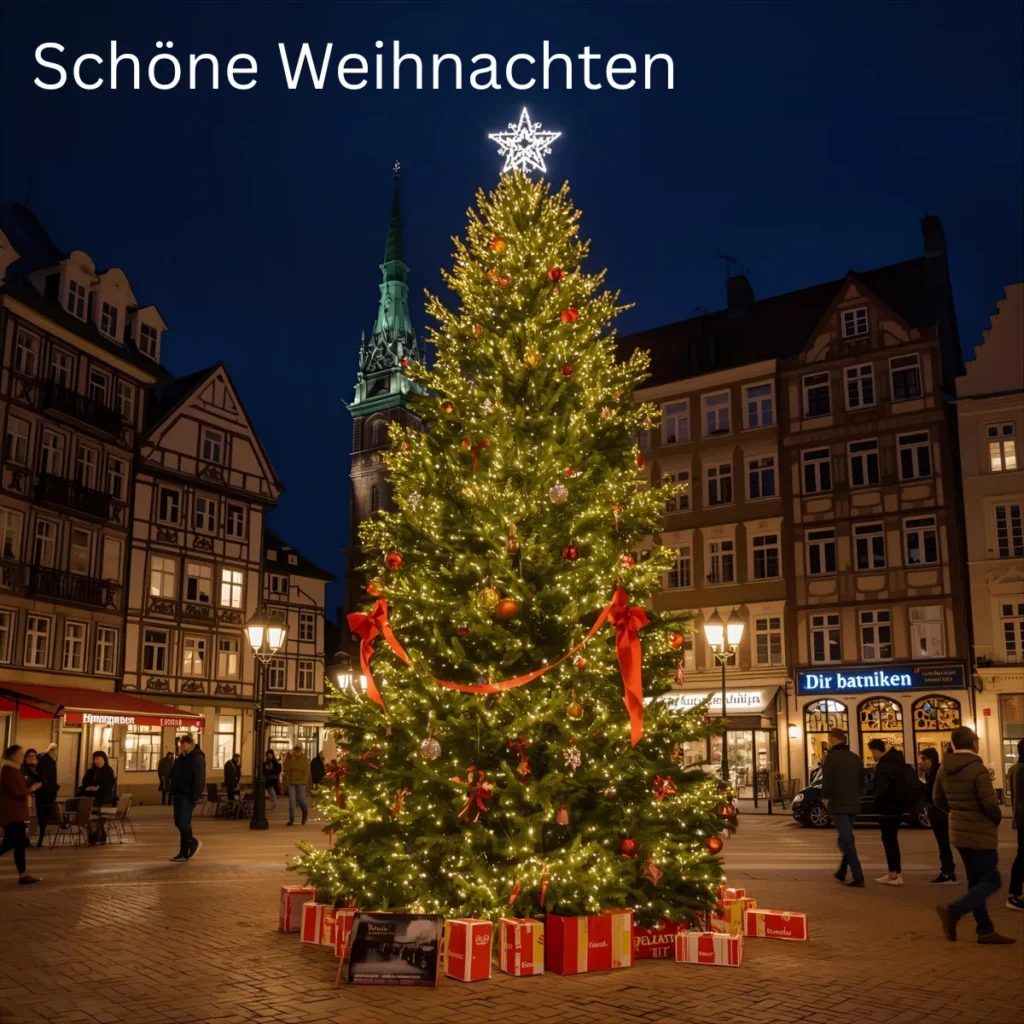
Origin:
“Schön” means beautiful or pleasant. This version is softer and poetic.
Example:
👤 User A: Ich wünsche dir schöne Weihnachten.
👤 User B: Oh, wie lieb! Dir auch!
Use: Warm, often used in personal notes or quiet settings.
4. Frohes Fest – Happy Holidays
Origin:
Literally “Happy Celebration.” This is a more neutral, inclusive way of saying Merry Christmas and is often used in stores or official contexts.
Example:
👤 User A: Frohes Fest!
👤 User B: Danke! Ebenso!
Use: Politically or culturally neutral — like “Happy Holidays.”
5. Gesegnete Weihnachten – Blessed Christmas
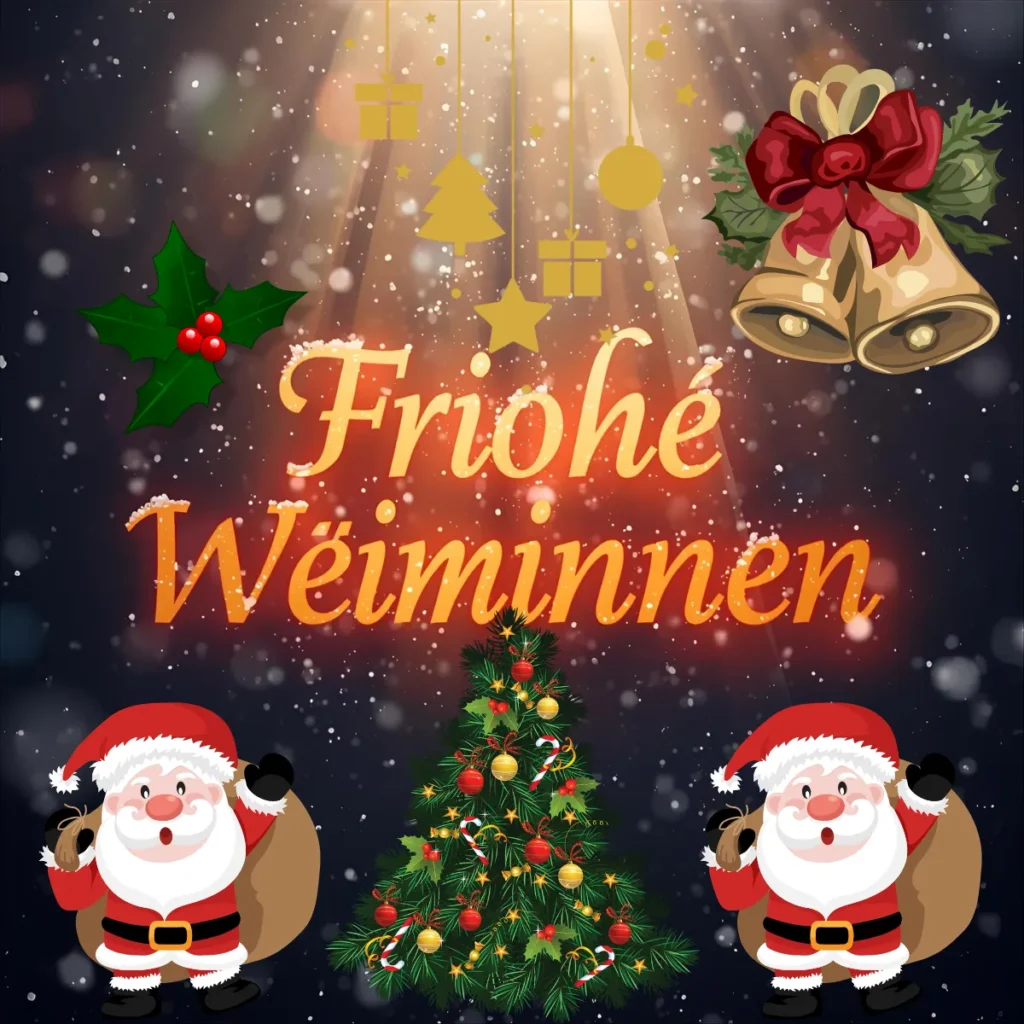
Origin:
Used mostly among religious communities or in church settings.
Example:
👤 User A: Gesegnete Weihnachten für dich und deine Familie.
👤 User B: Danke, das wünsche ich euch auch!
Use: Formal, spiritual, or religious greeting.
6. Frohe Weihnachten und ein gutes neues Jahr – Merry Christmas and a Happy New Year
Origin:
A common combination seen in cards, emails, and formal holiday messages.
Example:
👤 User A: Frohe Weihnachten und ein gutes neues Jahr!
👤 User B: Das wünsche ich dir auch von Herzen!
Use: Formal and complete seasonal greeting.
7. Frohes Christfest – Happy Christ Feast
Origin:
Old-fashioned or religious greeting used in more traditional families.
Example:
👤 User A: Frohes Christfest, Oma!
👤 User B: Danke, mein Schatz! Schön, dass du da bist.
Use: Traditional and faith-based.
8. Frohe Feiertage – Happy Holidays
Origin:
Like “Frohes Fest,” this version is inclusive and modern, covering the whole festive period.
Example:
👤 User A: Frohe Feiertage!
👤 User B: Dir auch! Viel Spaß mit deiner Familie!
Use: Polite and non-denominational.
9. Ein gesegnetes Fest – A blessed celebration
Origin:
Used mostly in Catholic or religious regions like Bavaria or Austria.
Example:
👤 User A: Ich wünsche euch ein gesegnetes Fest.
👤 User B: Danke! Euch auch viel Segen.
Use: Religious and heartfelt.
10. Frohes Weihnachtsfest – Happy Christmas celebration

Origin:
This is a slightly more formal and extended version of “Frohe Weihnachten.”
Example:
👤 User A: Frohes Weihnachtsfest, Herr Müller!
👤 User B: Vielen Dank, ebenfalls!
Use: Formal or written expression, often in business settings.
11. Frohe besinnliche Weihnachten – Peaceful, reflective Christmas
Origin:
“Besinnlich” means reflective or peaceful — common in German holiday wishes.
Example:
👤 User A: Ich wünsche dir frohe besinnliche Weihnachten.
👤 User B: Danke, das ist genau das, was ich brauche.
Use: Thoughtful, poetic, used in cards or close relationships.
12. Hab schöne Weihnachten – Have a nice Christmas
Origin:
This is a more casual spoken version of the traditional greeting.
Example:
👤 User A: Ich muss los – hab schöne Weihnachten!
👤 User B: Du auch, bis bald!
Use: Casual farewell or quick greeting.
13. Ein frohes Weihnachtsfest im Kreise deiner Liebsten – A happy Christmas with your loved ones
Origin:
A heartfelt expression used in letters or formal cards.
Example:
👤 User A: Ich wünsche dir ein frohes Weihnachtsfest im Kreise deiner Liebsten.
👤 User B: Wie schön – danke, das wünsche ich dir auch!
Use: Elegant and family-focused.
14. Ich wünsche dir/ihnen frohe Weihnachten – I wish you a Merry Christmas
Origin:
A complete, polite way to offer the greeting in both casual (dir) and formal (Ihnen) forms.
Example:
👤 User A: Ich wünsche Ihnen frohe Weihnachten, Frau Becker.
👤 User B: Vielen Dank, Herr Schmidt. Ihnen auch!
Use: Polite and formal or respectful.
15. Weihnachtliche Grüße – Christmas greetings
Origin:
A written-only phrase often seen in emails, postcards, or holiday letters.
Example:
📩 User A writes: Weihnachtliche Grüße aus Berlin!
📩 User B replies: Danke! Liebe Grüße zurück!
Use: Written, formal or semi-formal correspondence.
FAQs
1. What is the most common way to say Merry Christmas in German?
The most common phrase is “Frohe Weihnachten.”
2. How do I pronounce “Frohe Weihnachten”?
Say it like: FROH-uh VY-nakh-ten (the “ch” is like a soft throat sound).
3. Can I use this phrase in both formal and informal situations?
Yes, Frohe Weihnachten works everywhere — friends, family, coworkers.
4. Is there a shorter or casual way to say it?
Yes, you can say “Frohes Fest” (meaning “Happy Holidays”).
5. How do I write Merry Christmas in a greeting card in German?
“Frohe Weihnachten und ein glückliches neues Jahr!” (Merry Christmas and a Happy New Year!)
6. What emoji can I use with this phrase?
Use 🎄✨❄️— they match the holiday vibe perfectly.
7. Can I add someone’s name with the greeting?
Yes. Example: Frohe Weihnachten, Anna!
8. How do Germans say “Merry Christmas Eve”?
They say “Frohe Heiligabend.”
9. Do German-speaking countries celebrate Christmas differently?
Yes, for example, gifts are often opened on December 24 (Christmas Eve).
10. Is it okay to use this phrase outside of Germany?
Yes! It’s also used in Austria, Switzerland, and other German-speaking regions.
Conclusion:
How to Say Merry Christmas in German is best expressed with “Frohe Weihnachten,” the most widely used holiday greeting. You can also say “Fröhliche Weihnachten” or add variations to make your wishes warmer and more personal. By learning these phrases, you can spread festive cheer and connect with German speakers in a respectful and joyful way.

Liam Bennett is a dedicated content writer who creates clear, engaging, and well-structured articles.
He focuses on delivering practical information that is easy for readers to understand and apply.
Liam Bennett currently writes high-quality content for repliesnest.com, ensuring clarity and reliability.

